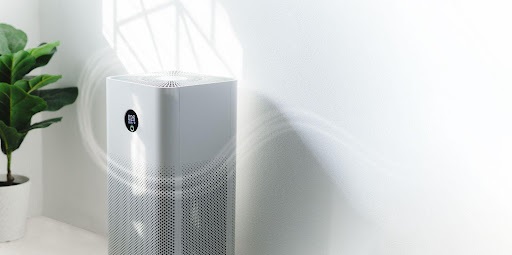Indoor air purification removes contaminants for a healthier environment. With indoor air quality issues mounting, filtration has gained popularity. Indoor dust, allergies, and volatile chemicals harm health. Purification systems reduce these concerns and clean the air. Understanding its importance is vital to protecting our health despite indoor pollution concerns.
Understanding Air Purification
Indoor air is purified to remove impurities and improve quality. Air purifiers filter dust and allergens. Some kill bacteria with UV-C light, while others trap contaminants with ionizers. The main aim remains consistent: eradicating contaminants. This process creates a healthier environment. It does so by reducing harmful elements and ensuring cleaner, fresher air for occupants to breathe comfortably.
Air Pollutant Types
Indoor pollutants include dust, pollen, pet dander, mold, and VOCs. Dust, pollen, and pet dander irritate lungs. Mold spores can cause respiratory problems and allergies. Note that home product VOCs might cause headaches and dizziness.
They can pose long-term health risks. Each pollutant poses distinct health hazards. These include minor irritations and severe breathing issues. Thus, thorough air filtration is constantly needed to reduce health concerns.
Mechanisms of Air Purification
Air purifiers filter indoor air. Popular air purifiers use HEPA filters. They efficiently trap dust and allergens as small as 0.3 microns. Adsorption-based activated carbon filters remove smells and gasses well. DNA disruption by UV-C light kills bacteria and viruses. Ionizers neutralize airborne microorganisms. These processes purify indoor air of many pollutants for better quality.
Air Purification Benefits
Air pollution poses significant health risks, as we’ve observed. Keeping this air clean is more important than ever. It has various benefits. It greatly improves respiratory health by minimizing airborne irritants. Eliminating dust and pollen reduces allergy symptoms. Purified air reduces asthma triggers, improving breathing. Purifying the air improves health by removing hazardous particles. Cleaner air improves quality of life, especially for people with respiratory disorders. HEPA and activated carbon air purifiers reduce indoor pollution by capturing gasses and particles. Smoke and cooking oil and spice odors won’t irritate guests.
HEPA air purifiers remove most allergens from your home, preventing sleep interruptions. Better sleep comes from cleaner air, and this is something we all need.
Factors in Choosing Air Purifiers
Selecting an air purifier requires evaluating room size, filter types, and noise levels. Consider your specific needs and the purifier’s efficiency in removing pollutants. Noise levels matter for undisturbed use. Select a purifier for your space and health.
Key Pointers:
- Air purifiers with HEPA filters can remove 99.97% of pollen, pet dander, and dust mites. This reduces asthma and allergy problems.
- Air purifiers’ activated carbon filters capture odors, gasses, and compounds like VOCs that can cause nausea and other health problems.
- Purifiers decrease indoor contaminants including radon, asbestos, and airborne infections. This promotes immunity, sleep, and life expectancy.
With all these details, we hope you can choose the perfect air purifier for your home. However, do your own research before buying the ideal product. As guidance, air purifiers from Aqua Clear Water Systems are the finest.
Good luck!

